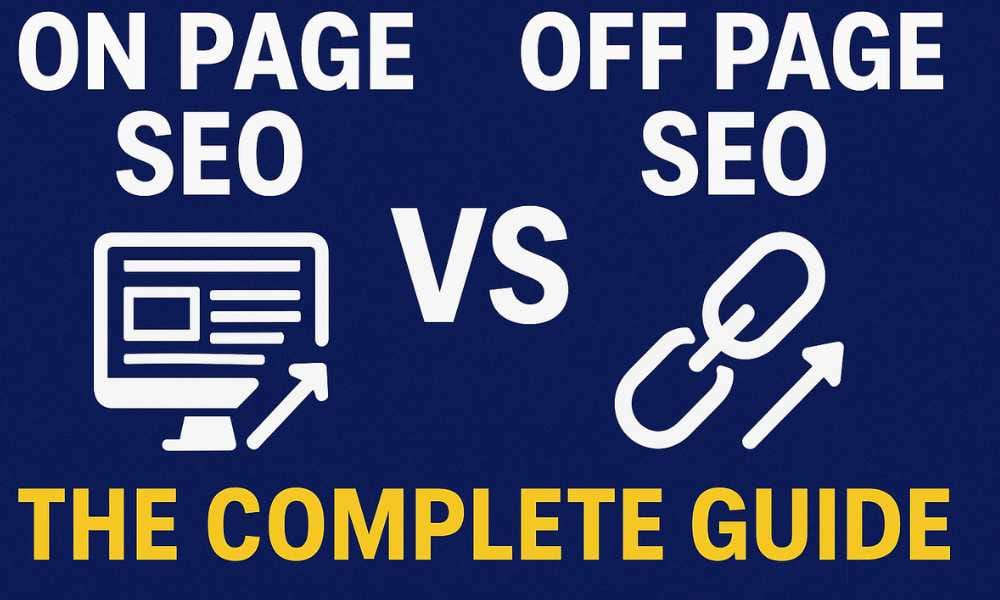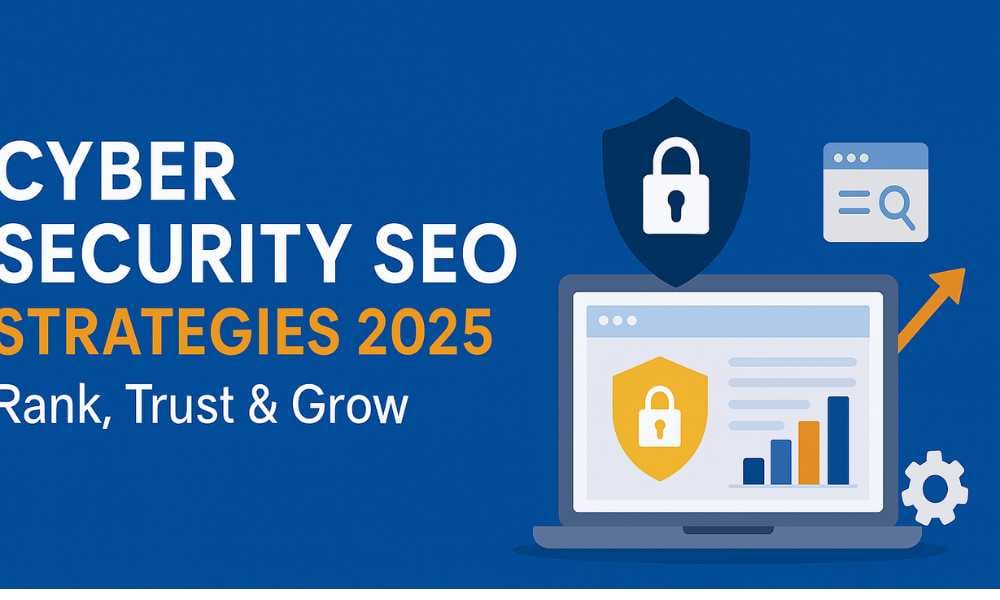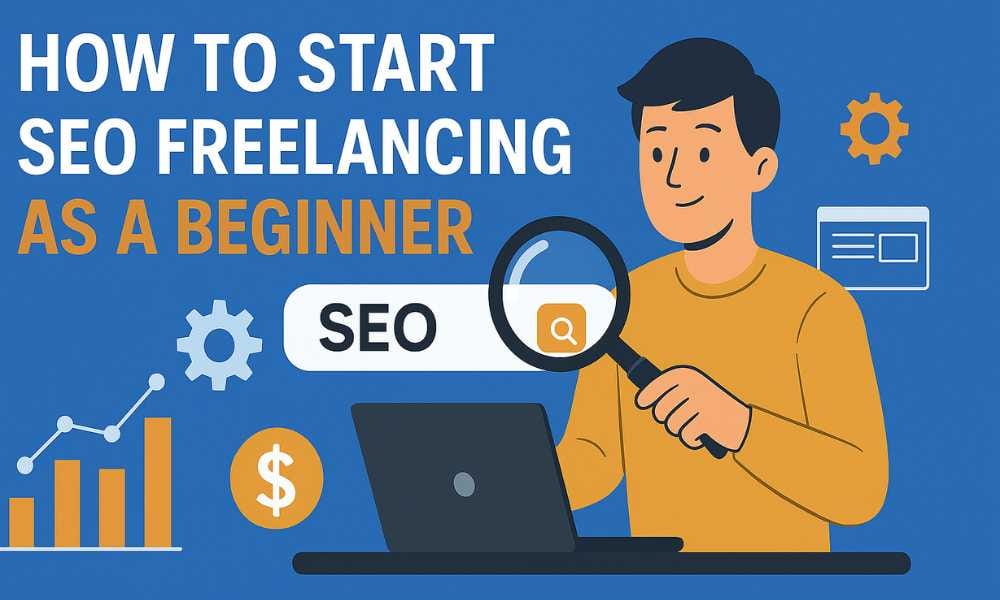SEO continues to stand out as a cornerstone of digital marketing, helping businesses improve visibility, attract targeted traffic, and build long-term authority online. Among its core pillars, two areas dominate every strategy: on page SEO vs off page SEO.
Many beginners ask: Which is more important? The truth is, both work hand in hand. In this guide, we’ll break down the differences, best practices, and practical steps you can take to master both sides of SEO.
What is On Page SEO?
On page SEO covers everything you can optimize within your own website to improve how search engines and users interact with it. It’s the direct foundation of your visibility in search results.
Core elements include:
- Proper keyword targeting and placement
- Well-structured titles, meta descriptions, and headers
- User-friendly internal linking
- Mobile-friendly design and fast page loading
- Content relevance and depth
- Schema markup for rich results
Example: If you’re creating an article on on page SEO vs off page SEO, making sure your headings include variations of the keyword and your content provides in-depth insights is an on page tactic.
What is Off Page SEO?
Off page SEO focuses on external signals that build your site’s authority and credibility. These are elements that happen outside your own domain but directly influence rankings.
Core elements include:
- Earning quality backlinks
- Generating brand mentions across the web
- Leveraging social media visibility
- Securing local business citations
- Collaborating with influencers and industry voices
For example, if a reputable site like Search Engine Journal cites your article on on page SEO vs off page SEO, that link signals to Google that your content is trustworthy.
Comparing On Page SEO and Off Page SEO: Understanding the Distinctions
When comparing on page SEO vs off page SEO, imagine building a professional reputation:
- On page SEO is your résumé—organized, clear, and easy to understand.
- Off page SEO is the recommendations and referrals you get from others.
Quick Comparison
| Aspect | On Page SEO | Off Page SEO |
|---|---|---|
| Control | Fully managed by you | Influenced by external sources |
| Main Focus | Website content, structure, usability | Backlinks, trust, authority |
| Tools Commonly Used | Google Search Console, Yoast, Screaming Frog | Ahrefs, Semrush, Moz |
| Primary Goal | Relevance and user experience | Authority and online reputation |
This makes it clear that the on page SEO vs off page SEO debate is not about “choosing one,” but about blending them strategically.
Why Both Matter for Rankings
Google’s algorithm values both relevance and authority:
- On page SEO ensures your content is understandable and properly optimized.
- Off page SEO proves your site deserves trust and recognition.
You can’t scale rankings with only one side of the on page SEO vs off page SEO strategy—balance is key.
Best Practices for On Page SEO
- Target Long-Tail Keywords – Instead of vague terms, focus on intent-rich queries like “on page SEO vs off page SEO explained.”
- Craft Compelling Titles & Descriptions – Clear, engaging, and within length guidelines.
- Structure Content for Readability – Use headings, bullet points, and short paragraphs.
- Use Internal Linking Smartly – Point readers to related posts (e.g., “SEO tools for beginners”).
- Improve Technical Health – Faster pages, mobile-first design, and error-free code.
- Add Schema Markup – Enable rich snippets for higher click-through rates.
For official guidance, see Google Search Central.
Best Practices for Off Page SEO
- Build Authoritative Backlinks – Guest posts, HARO mentions, and digital PR.
- Maximize Social Sharing – Encourage visibility across platforms.
- Earn Brand Mentions – Even unlinked references improve authority signals.
- Focus on Local SEO – Optimize Google Business Profile and industry directories.
- Work with Influencers – Collaboration often leads to natural backlinks.
Resource: Ahrefs Blog is excellent for backlink strategies.
Which Should You Prioritize First?
If your site is new, prioritize on page SEO first. Without optimized content, even the best backlinks won’t help.
Once the basics are in place, shift attention to off page strategies. Over time, balance between the two is essential. This is where on page SEO vs off page SEO becomes a matter of timing rather than competition.
Mistakes to Avoid in On Page SEO vs Off Page SEO
- Overstuffing keywords like on page SEO vs off page SEO unnaturally.
- Buying low-quality backlinks.
- Ignoring technical performance (speed, mobile, UX).
- Skipping E-E-A-T elements like author credentials and sourcing.
- Letting old content go stale.
Case Studies and Real-Life Examples
Case 1: On Page Success
A SaaS company refreshed outdated blog posts, optimized headers, and added internal links. Result: +40% organic traffic in 90 days.
Case 2: Off Page Boost
An e-commerce brand launched a PR campaign, earning backlinks from industry news sites. Their product categories quickly climbed SERPs.
Case 3: Combining Both
A local service business optimized site speed and schema (on page) while also collecting reviews and citations (off page). Outcome: Top 3 local map rankings.
These examples prove that on page SEO vs off page SEO isn’t about either-or but about strategic combination.
FAQs
Q1: What is the main difference between on page SEO vs off page SEO?
On page SEO optimizes your site’s internal structure and content, while off page SEO focuses on external signals like backlinks and brand mentions.
Q2: Which matters more: on page SEO vs off page SEO?
Neither outweighs the other—both are crucial for rankings. On page improves relevance, off page builds authority.
Q3: Can a site rank with only on page SEO?
Yes, for low-competition terms. But for competitive searches, you’ll need off page authority.
Q4: How do backlinks influence off page SEO?
Backlinks are signals of trust—Google sees them as recommendations, boosting your site’s authority.
Q5: How often should on page SEO be updated?
Review quarterly; update meta tags, refresh content, and check for technical errors.
Conclusion & Call-to-Action
The on page SEO vs off page SEO discussion isn’t about choosing one. Instead, think of them as two halves of a winning SEO strategy:
- On page SEO ensures your site is relevant, user-friendly, and technically strong.
- Off page SEO amplifies trust, credibility, and authority.
👉 Want to dominate search rankings?
- Start with a full site audit and fix on page issues.
- Develop a backlink strategy through outreach and content marketing.
- Monitor progress with Google Search Console, Ahrefs, or Semrush.
🚀 The sooner you start balancing both sides of SEO, the sooner you’ll see long-term growth in rankings and conversions.
👉 Whether you’re mastering on page SEO vs off page SEO or growing your freelance SEO business, continuous learning is the key. Don’t miss our in-depth guide on building a career as an SEO freelancer.


